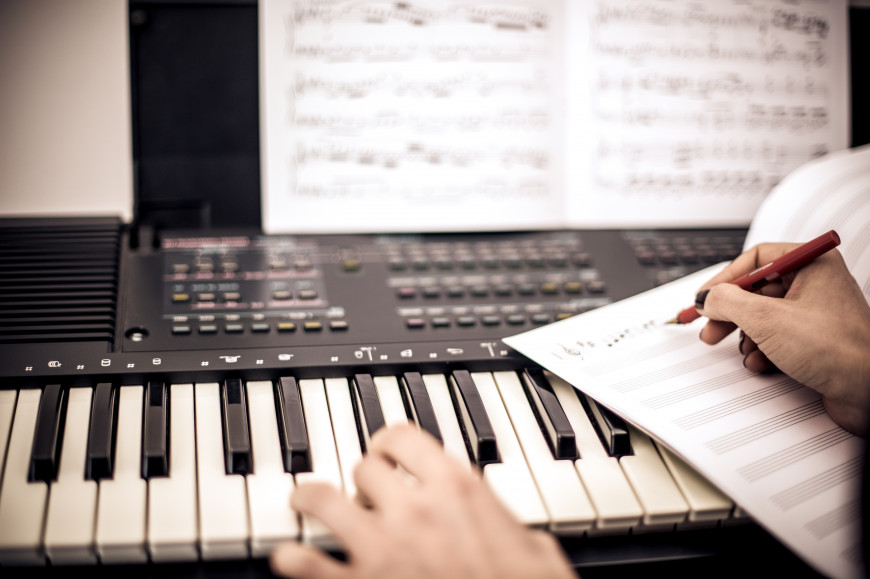The Importance of Transcription

An amazing way to enhance your musical vocabulary
Transcription may sound like a fancy musical term, but the truth is you have probably already transcribed a tune and didn’t even know it! Let’s start with Merriam Webster’s definition:
Transcription - an arrangement of a musical composition for some instrument or voice other than the original.
When we hear about transcription, it often has to do with jazz solos since they are not typically written down. Many jazz students try to make logical sense of classic solos by writing them down and figuring out what made the solo great. Here are a few pointers on how to use the method of transcription to take your musicianship to the next level.
Transcribe your own songs / tunes.
If you are a songwriter and you have a bunch of songs that you have never written down, then you should! There are many reasons why. During rehearsals, you will be able to hand out a lead-sheet of your songs to your band members. This will allow them to more easily learn how to play the song. Additionally, by writing down the melody, you will allow the musicians in the band to make up a part around the melody, refer to it in a different melodic line, come up with a cool harmony, or relate to it rhythmically. Transcribing your music will allow you to review your own composition visually, which could spark some changes to parts of the composition that never really fit well. There are so many good reasons, I could go on forever!
Transcribe other musician’s songs.
Music writing is called composing for a good reason - there’s not much new under the sun. The wonderful thing about being a musician is that you can combine many different musical elements and add them to your musical vocabulary. It’s not too different from cooking, if you think about it! One of the best ways to expand your musical vocabulary is to listen to your favorite song and figure out what is happening there harmony-wise OR melody-wise. You will find every artist has their own signature sound. You can have some references in your music - but of course don’t completely copy! For the fun of it, here is a practical example: The Beatles have a signature ending of bVIM, bVIIM and I (for playing purposes, Ab Bb C). You know it’s the Beatles, because it’s a very common sequence they used. However, you might hear it in other songs. Juan Luis Guerra features it in his song Solo tengo ojos para ti, for example. You can hear that the musical signature adds something very interesting, rather than finishing the song in a more common way.
Lastly, if you are a musician who is seeking better technique and sound, transcribing solos is one of the most beneficial ways to practice these areas. Reading written material is very important, but there is so much that is beyond the written world - sound, intonation, articulation, feel. Many people forget to pay attention to these elements when writing themselves, but when transcribing a solo you are forced to look at each and every note with a magnifying glass. You will not only discover the pitch and rhythmic value, but also the intention behind the notes!
What are you waiting for? It’s time to transcribe! Want to know which songs you should transcribe in order to reach your goals? Need help with transcribing? Book a lesson with a Lessonface teacher!
 |
Yonit Spiegelman is a bassist, composer, guitarist, vocalist and producer based in New York City. She has been teaching on Lessonface for over three years. Book a lesson! |




